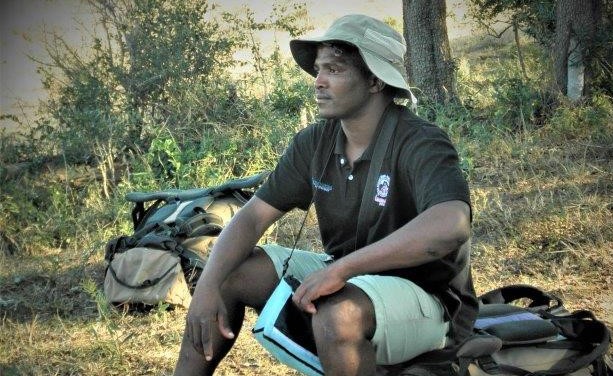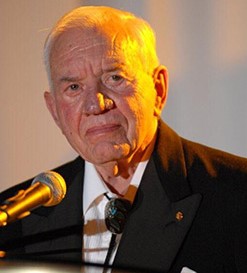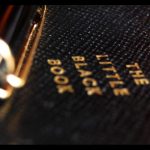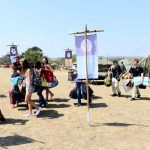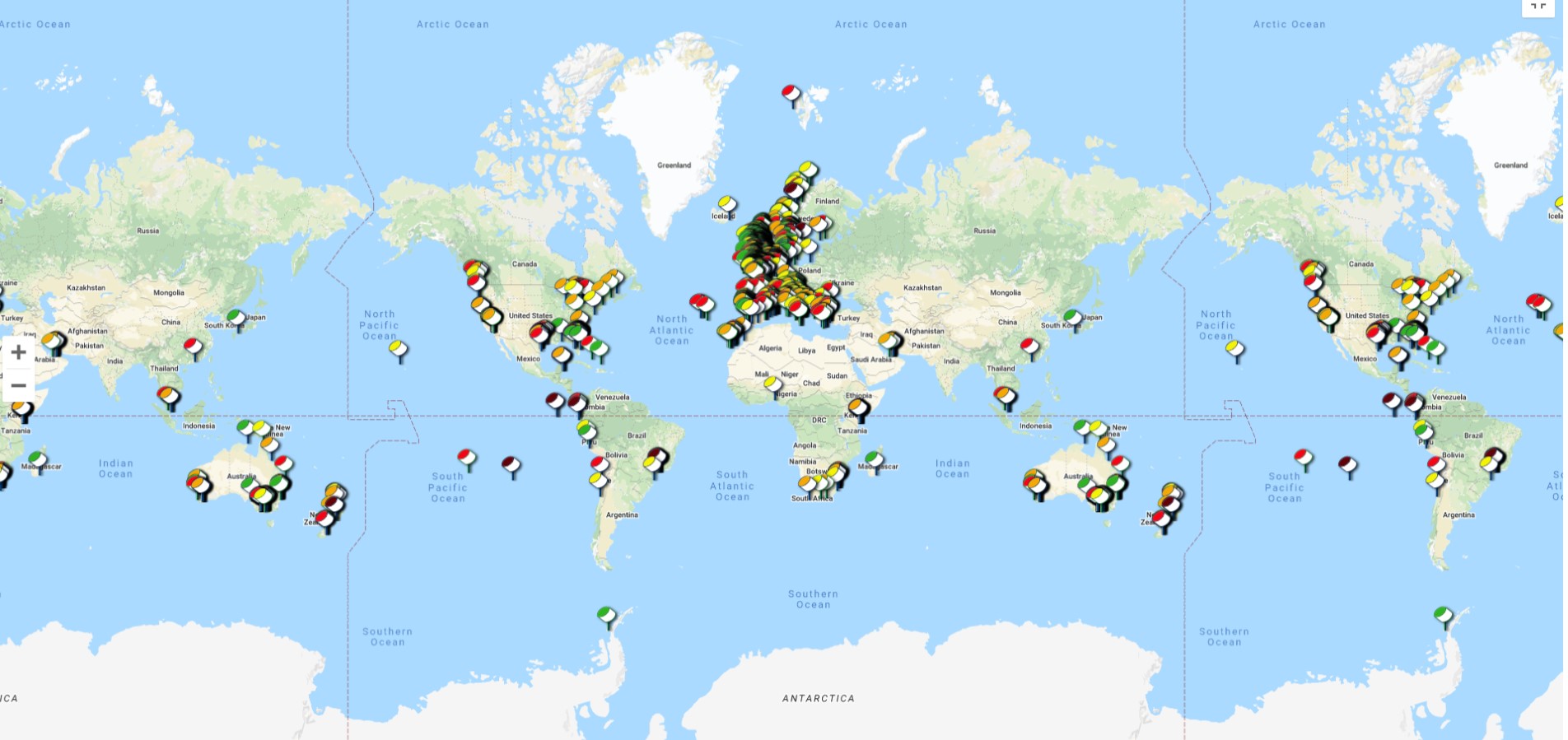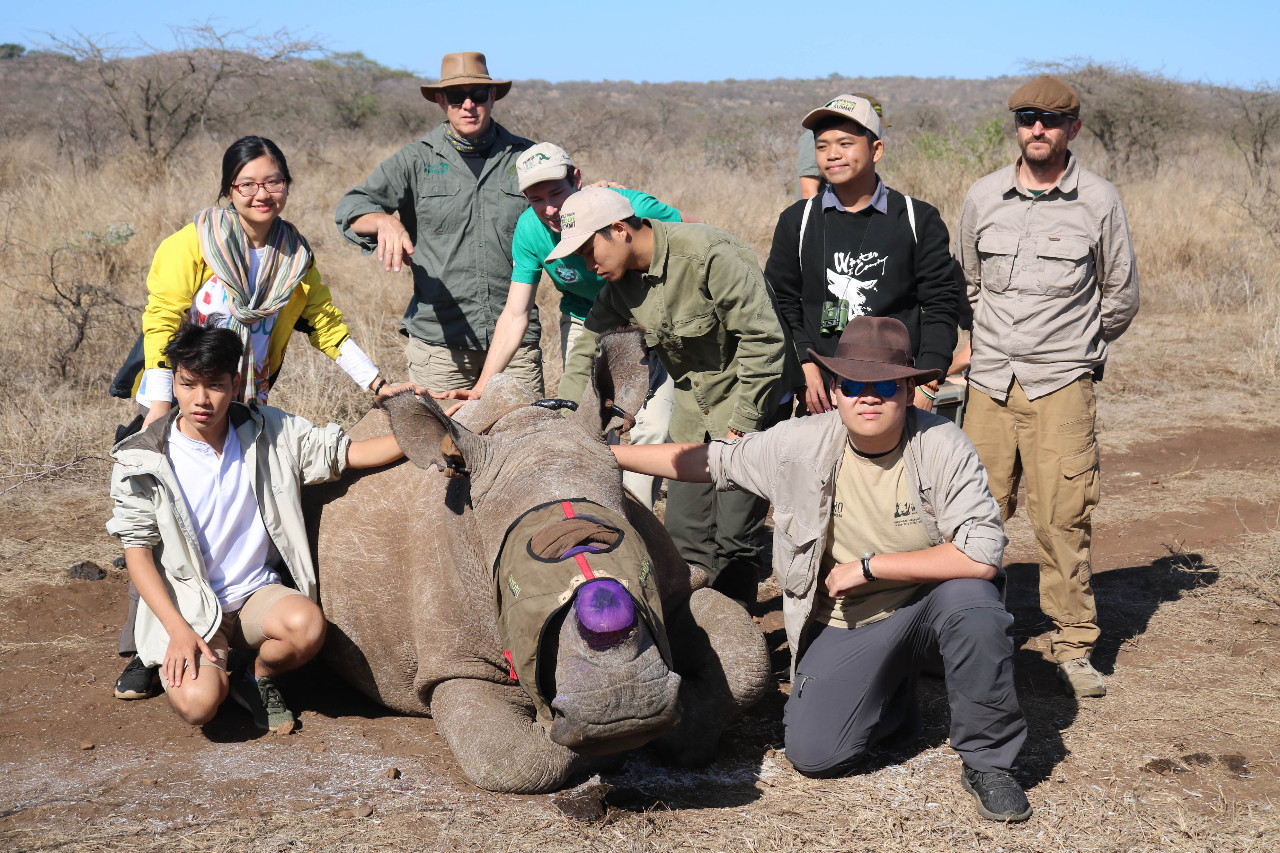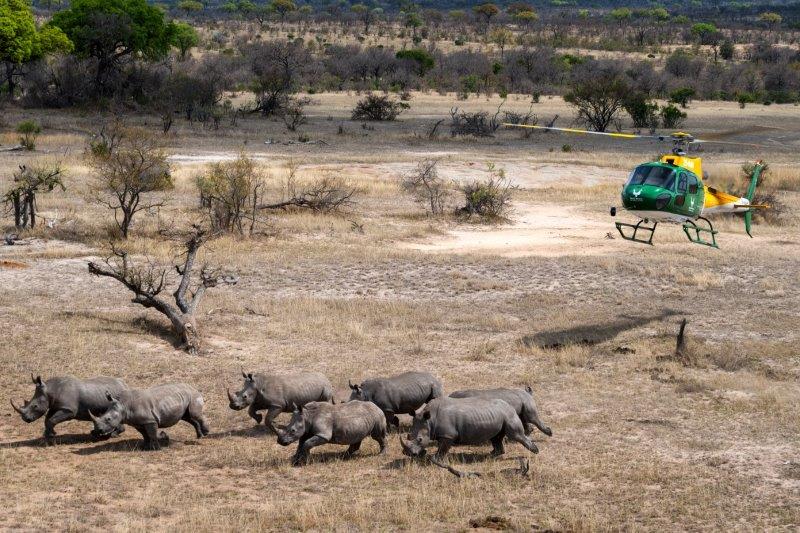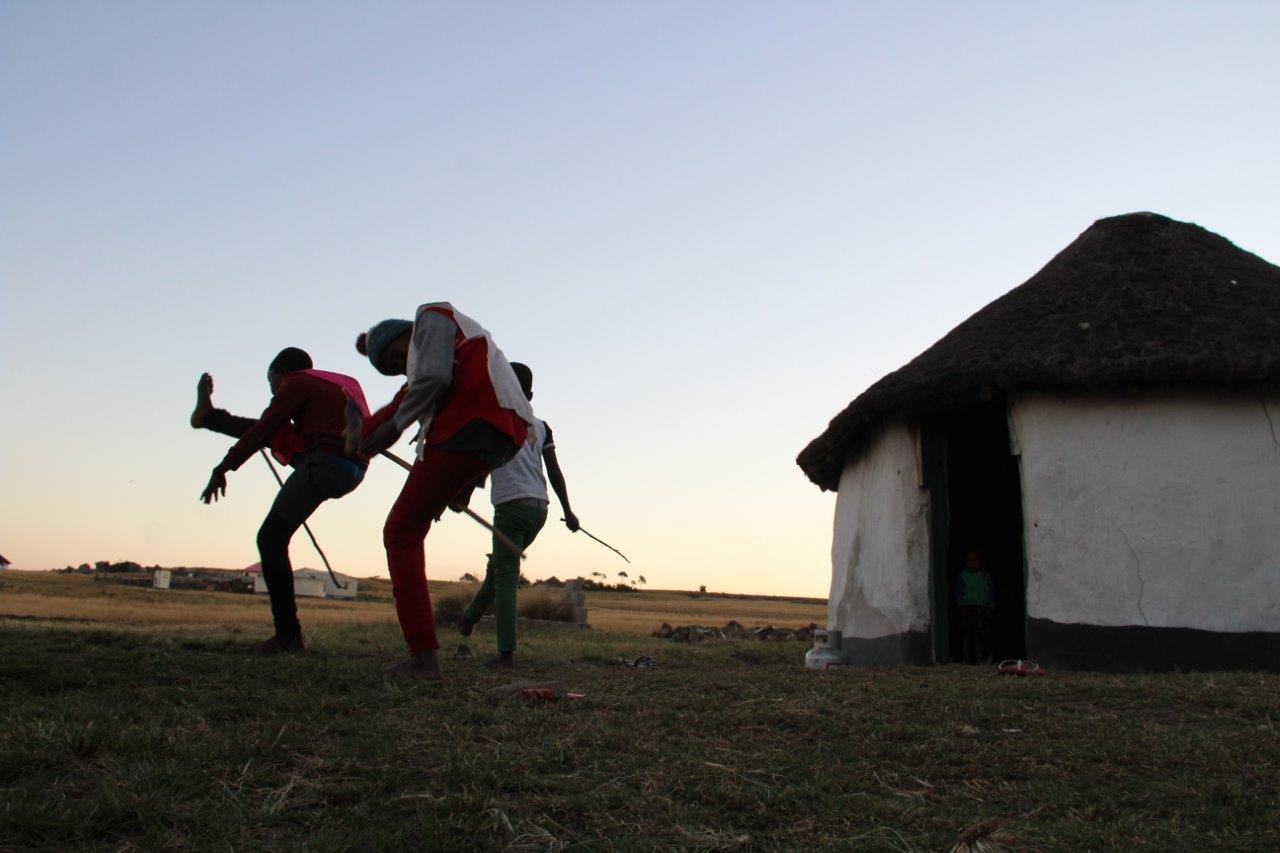Confronting his fears on a Wilderness Leadership School trail was a life changing experience for a Wild Coast hiking guide, writes Mlu Mdletshe
On night guard duty, deep in the wilderness, Siya Ndovela peered into the surrounding darkness, reminded of a nightmare which had awoken him sweating and crying a few days ago.
In the dream, Ndovela was a game ranger responsible for everyone’s safety. This included keeping a fire burning all night to keep wild animals at bay. A lion suddenly jumped out the darkness followed by other creatures. Siya runs to alert armed rangers sleeping nearby. But they do not budge. His heart racing, the animals catch up to him. “I felt lion’s claws tear into my neck,” Siya later wrote.
It was just a bad dream. Or was it? We’ve all had nightmares. Mostly, we shrug them off, but for Ndovela this felt close to the bone.
A few days before, Ndovela had been invited, all expenses paid, to join a trail run by the Wilderness Leadership School (WLS) in the Hluhluwe – iMfolozi Game Reserve.
Ian Player
The trail was founded by pioneering conservationists, Dr Ian Player and Magqubu Ntombela in 1957. Since then, more than 70 000 people have completed it; many describe it as a profound experience.
The wilderness trails reconnect people with nature as part of a broader mission to save wild spaces.
Player believed that spending time in the wilderness led to “peeling off of layers of personality until aspects of oneself are exposed of which one had not been aware before”
“On the trail we are guests of the natural world; we are humbled by wilderness, in awe of its complexity, power and beauty. Outside of this our egos rule,” said Player.
Guests of the natural world
Player, who died in 2014, was also a keen student of the work of Carl Jung, sharing the pioneering psycho-analyst’s fascination for the subconscious and the world of dreams.
For Ndovela, missing out on the opportunity to take part in a wilderness trail was not an option. But the nightmare had shaken him. Believing it was a premonition; Ndovela consulted a sangoma, Thelima Mbhoyisa (Mambhoyisa), who lives near his home in Nyavini, where he takes nature lovers on hiking trails along the wild coast.
Barefoot on the floor of the isigodlo (consulting room), Ndovela spoke of his fears. In the low-built, dark, windowless hut, episodes of regret also flooded Ndovela’s mind – many opportunities wasted because of fear.
Madiba’s messenger
Mambhoyisa counselled him to embrace the dream, to draw courage from it, and remember the words of his late father, Bonisile Vumba Ndovela, about how their ancestors had thrived for centuries in what was once a wilderness. Ndovela was also reminded that one of his uncles had served as one of Nelson Mandela’s messengers when the former president was incarcerated.
Four days later, his mind made up, Ndovela signed the Wilderness Leadership School (WLS) indemnity form, said goodbye to his wife Luleka Funwa and children Live, Endinakho and Lubanzi Ndovela, and set off on his first wilderness trail.
With him were seven others, including a Belgian visitor, Katleen Fransen.
After packing rucksacks filled with food supplies, the crew set off stripped of their cellphones and bare necessities of modern life except clothing and toothbrushes. Not even toilet paper is allowed on wilderness trails.
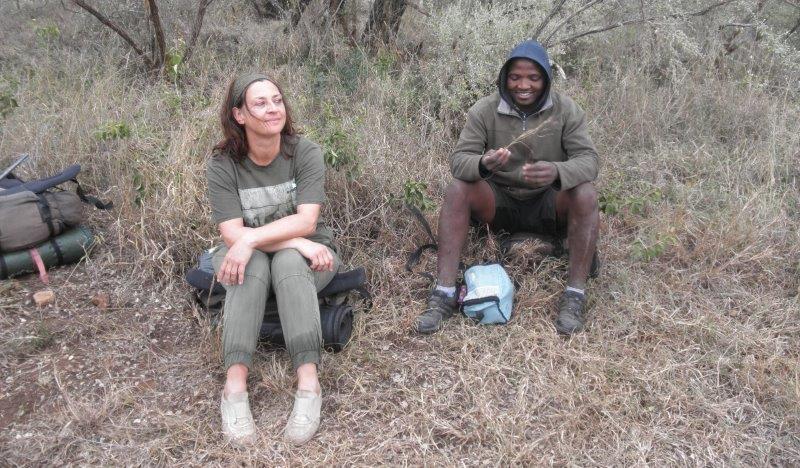
Fransen’s diary records sightings of giraffe, vulture, wildebeest, baboons tip-toeing across a shallow river like cats that dislike water, the yelping, whining, screaming and laughing of hyenas at nights – shiver and goose bump stuff for the city lass.
And each day, with eyes so eager to see animals, almost everything became animal-shaped in the bush.
“Isn’t that a rhino?” asked a fellow hiker, peering through binoculars at a set of rocks hugging a tree with an extended trunk like that of an elephant. This elephant-tree sighting was soon a standing joke.
Spooked
Amid this camaraderie, Ndovela was still nervy. Day one’s explanation of the rules had not helped.
Q: What do you do when you come across a dangerous wild animal?
A: Stand still or get behind a tree so as not to spook it.
“But, it’s me who was spooked, thinking, “Yoh, this is one helluva dangerous place we’re in,” said Ndovela.
He admits that over the next five days, anxiety stalked him like a “huge cat”. At all times he walked as close as he could behind the armed rangers – directly behind the lead guide, Mandla Mkhwanazi, almost treading on his every footstep.
It did not go unnoticed.
“The energy of our group reflects on the animals. We don’t see many animals. Maybe somebody is allergic to them,” laughed Mkhwanazi.
Reflection
But under the wing of Mkhwanazi, the ever-curious Ndovela was soon learning about ways of the wild he not considered before.
Take for instance, the hyena (impisi in Mpondo) that voracious scavenger known for cowardice, said Ndovela
“When Mandla told me how they fight and even kill bigger predators over recently killed prey, I couldn’t believe it given their relatively small size,” said Ndovela.
And every night, he had time to reflect on his visit to the sangoma. On wilderness trails, each person does guard duty while the rangers sleep, keeping a fire going to keep dangerous animals away.
This afforded Ndovela time to confront his fears and analyse his dream. On the last morning, he stood overlooking the white iMfolozi river, deeply satisfied.
Breaking free
“I decided to break free from all my past fears – not just the dream which I thought had taken a hold over me,” said Ndovela.
Back home, as the head of a new family branch, Ndovela can now shares his newfound wisdom.
As Mkhwanazi says: “When you encounter wild animals, stand your ground. If you decide to run, the animal will chase you down, thinking you’re its prey,” says Ndovela. “And so it is with life. If we run from challenges, we invite more trouble.”
It’s like Nelson Mandela once said: courage is not the absence of fear, but the triumph over it.
“The brave man,” said Mandela, “is not he who does not feel afraid, but he who conquers that fear.”
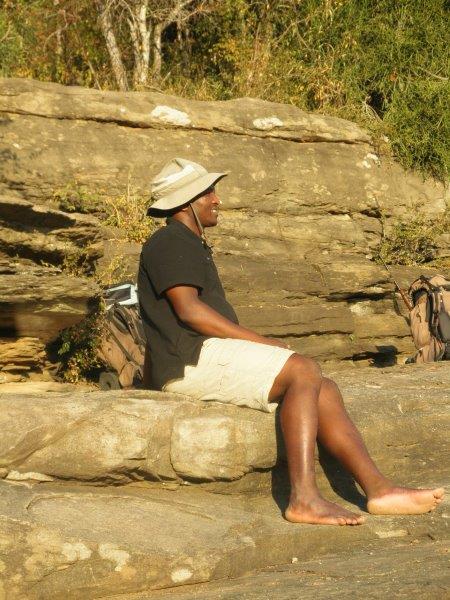 Siya Ndovela, is a hiking guide on the Wild Coast. His home is in the Amadiba area, close to the contested Red Sands of Xolobeni, an area earmarked for titanium mining. He was selected by Roving Reporters to take part in a sponsored Wilderness Leadership School trail as part of the agency’s mission to develop environmental watchdogs.
Siya Ndovela, is a hiking guide on the Wild Coast. His home is in the Amadiba area, close to the contested Red Sands of Xolobeni, an area earmarked for titanium mining. He was selected by Roving Reporters to take part in a sponsored Wilderness Leadership School trail as part of the agency’s mission to develop environmental watchdogs.
Mlu Mdletshe is a Durban University of Technology journalism graduate enrolled on Roving Reporters training programme: Developing environmental watchdogs.

